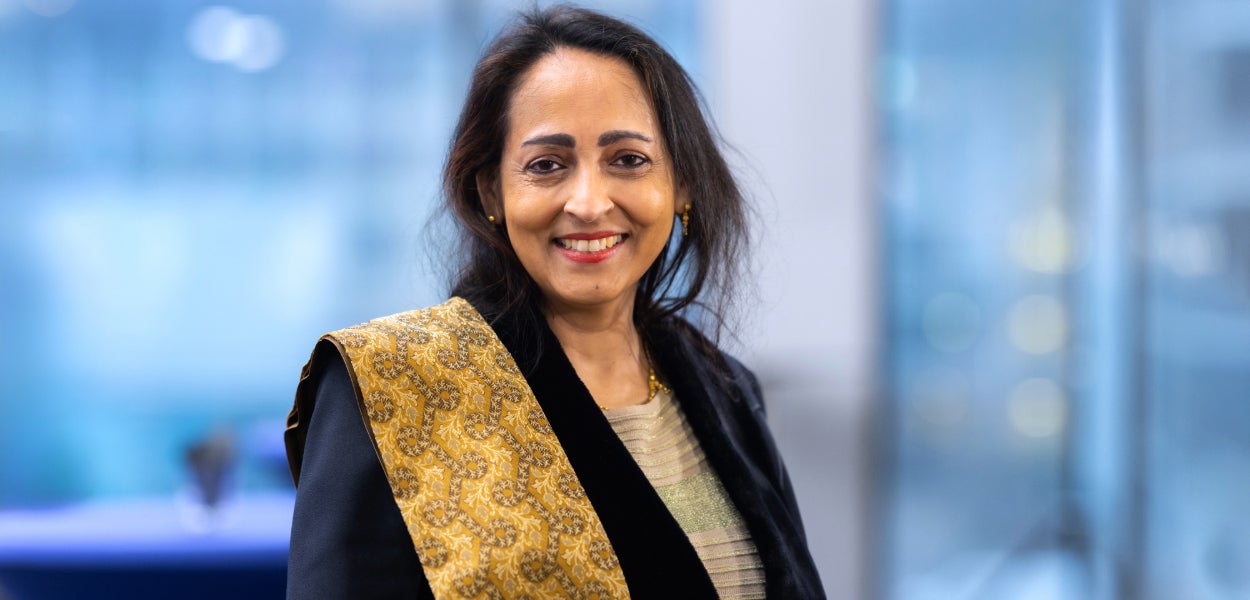“We need to show what we, as a university, contribute. Facts and expertise matter, and it’s our responsibility to prepare our students accordingly.” In this interview, she shares her passion for education, the role of A Broader Mind, and why VU is becoming more outspoken.
From chemistry teacher to professor and education innovator - where did that shift come from?
“I’ve always had a passion for education. Even as a child, I loved explaining things. That never changed, so I chose chemistry because I wanted to teach. But during my studies, I was introduced to research for the first time, and I found it absolutely fascinating.
During my PhD research, I discovered something interesting: in pharmaceutical sciences, every small step is tested and improved. In education, this happens far less systematically. And yet, at a university, research and education come together beautifully. After all, you don’t become a professor for nothing. That challenge intrigued me: how can we develop and improve education with the same level of thoughtfulness? That question led me to education innovation.”
How do you see the future of higher education, especially given the current political landscape?
“The political climate is not good. We don't have to be naive about that. Budget cuts are happening, internationalisation is under scrutiny, and science is sometimes dismissed as elitist or out of touch.
But we must not let this paralyse us. Now, more than ever, it’s important to provide an academic countervoice. To show that science isn’t there to serve an isolated bubble but because facts and expertise matter.”
Providing a countervoice - that’s easier said than done in a world full of noise and quick opinions. What’s needed?
“It starts with teaching students how to navigate that noise. How do you check sources? How do you recognise misinformation? How do you engage in meaningful dialogue with someone who thinks completely differently from you? These are essential skills, but we’re losing them. People talk past each other, stay in their own bubbles, and seek confirmation of their existing beliefs.
That’s why A Broader Mind is so important. As a university, we must be a place where students learn to break out of those bubbles. It’s not just about transferring knowledge but about cultivating a mindset: learning to listen, thinking critically, and understanding that your perspective isn’t the only one. If we can instil that attitude, it will create a snowball effect. We won’t just be educating skilled professionals. We’ll be developing critical global citizens who genuinely contribute to society.
Universities need to broaden their perspective and embrace their societal role. And VU is doing that well. A Broader Mind isn’t just a project. it’s our identity. And we’re proud of it.”
VU seems to be stepping out of its shell. How do you see that?
“Well, that makes me incredibly happy. Six years ago, we were much less outspoken. We won awards, but barely mentioned them. That’s changed. We’ve secured a record number of Comenius grants, and VU is now ranked 11th for academic education. We’re doing very well.
And the best part? The Institutional Quality Assurance Audit (ITK) is coming up, and instead of nerves, there’s confidence. We know we’re going to do well. That shift in mentality is crucial.”
How do you translate this into educational innovation as Chief Education Officer? Should we be more bold in that area as well?
“Well, we work every day to ensure that innovation isn’t just a buzzword but actually makes a difference in the classroom. I want us, as a university, to not just talk about improving education but to have the courage to actually do it.
At the same time, we don’t innovate just for the sake of it. The world is changing, and that requires something from education. Students have different needs, technology is advancing rapidly, and the job market is evolving. On top of that, we’re facing major budget cuts. That’s the real challenge: how do we ensure that, despite fewer resources, we continue to provide strong, future-proof education?
We have so much knowledge and experience within our institution. Let’s use it. And VU is doing a great job at that, we should be proud of it.”
What’s your key message for your colleagues right now?
“We need each other. The major challenges of our time - climate change, social inequality, digitalisation - are too complex to be solved within a single discipline. We must learn to collaborate, to think from different perspectives. And that requires a transdisciplinary approach. VU is the perfect environment for that: we have humanities, sciences, social sciences, medicine, and technology all on one campus. That’s unique.
So my message is: engage that collaboration. Stay curious. And don’t give up. Learning involves trial and error, and that’s exactly what we, as a university, must demonstrate - that growth comes from stumbling, but it makes us stronger in the end.”

